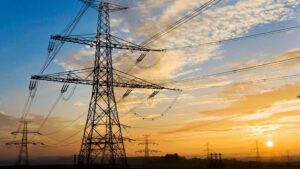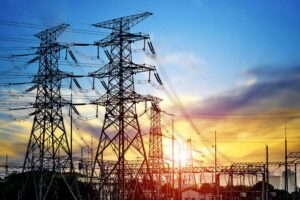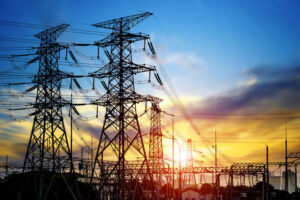
The development strategy of Kormotech, a leading Ukrainian pet food manufacturer, includes the use of green energy, and the company aims to provide up to 15% of its own generation by 2027, Kormotech’s Chief Operating Officer Igor Paranyak said in an interview with Interfax-Ukraine.
“Our strategy includes steps towards the use of green energy. At the moment, we have already implemented a project to install a 630 kW solar station at the first factory in Lithuania. At the new factory (Kėdainiai, Lithuania), we also plan to install solar stations on the roof of the factory; given the rather large area, almost 17 thousand square meters, it will be a large SPP. It is not part of this (EBRD loan – IF-U) project, we will implement it separately, but we plan to have 15% of our own electricity generation by 2027,” Paraniak said.
As reported, Kormotech has started construction of a new wet animal feed plant in Lithuania, in which it is investing EUR 60 million, of which EUR 40 million was provided by the EBRD. The planned capacity of the new plant is 40 thousand tons, and 200 jobs will be created. The first phase of the plant is scheduled to be launched in the second quarter of 2026, and all four phases by the end of 2028.
Kormotech is a global family-owned company with Ukrainian roots that has been producing high-quality food for cats and dogs under the Optimeal, Delickcious, Club 4 Paws, Woof, Meow! My Love. The company has production facilities in Ukraine and the EU. The product range includes more than 650 items. Kormotech is a leader in Ukraine, one of the TOP-50 global pet food producers and TOP-20 most dynamic pet food brands. Kormotech sells products of its own brands and its partners’ own brands to 46 countries.
The Kormotech Group of companies ended 2024 with $162.7 million in turnover, which is 6.5% more than in 2023. In total, last year the group of companies sold 83 thousand tons of dry and wet diets for cats and dogs, which is almost 7.5% more than in 2023.

In February 2025, Ukraine increased electricity imports by 33% to 244.2 thousand MWh compared to January and reduced exports by 61% to 33.1 thousand MWh, Ukrainian energy and climate think tank DiXi Group reported citing Energy map.
According to its post on Facebook on Wednesday, the total volume of imports exceeded exports by more than 7 times over the month.
Out of 33.1 thousand MWh of exports, the largest share went to Moldova – 15.5 thousand MWh (47%). Another 10 thousand MWh (30%) went to Hungary, 3.7 thousand MWh (11%) to Romania, 2.9 thousand MWh (9%) to Slovakia, and 1 thousand MWh (3%) to Poland.
DiXi Group experts note that during the last two decades of February, exports were almost non-existent due to a deficit in the power system as a result of massive Russian missile and drone strikes (February 1, 11 and 20), as well as a drop in air temperature.
On the contrary, imports in February, according to their data, increased, reaching 244.2 thousand MWh against 183.1 thousand MWh in January. Of this amount, 85.2 thousand MWh (35%) came from Hungary, 73.3 thousand MWh (30%) – from Slovakia, 46.3 thousand MWh (19%) – from Poland, 37.1 thousand MWh (15%) – from Romania, 2.3 thousand MWh (1%) – from Moldova.
The increase in imports was recorded in all available directions (from 34% to 80%), except for Poland, from which it decreased by 23%.
DiXi Group notes that compared to February 2024, when 84.1 thousand MWh were imported, imports have almost tripled.

Electricity imports in January 2025 decreased by 63.2% to 159.09 thousand MWh compared to December 2024, while exports increased 9 times to 63.4 thousand MWh, according to the Energy Map portal.
Thus, according to the calculations of the Energoreforma Internet portal, based on these data, electricity imports in January 2025 exceeded exports by 2.5 times.
Most of the electricity was imported in January from Poland – 50.78 thousand MWh (31.92% of the total). This was followed by Slovakia – 42.46 thousand MWh (26.69%), Hungary – 41.2 thousand MWh (25.9%), Romania – 23.38 thousand MWh (14.7%), and Moldova – 1.26 thousand MWh (0.79%).
In terms of exports in January, Moldova ranks first – 27.14 thousand MWh (42.81%) were supplied there. Hungary exported 21.12 thousand MWh (33.31%), Romania – 8.18 thousand MWh (12.9%), Slovakia – 6.27 thousand MWh (9.89%), Poland – 0.68 thousand MWh (1.08%).
As reported, electricity imports in December 2024 increased by 2.7 times compared to November – up to 433.4 thousand MWh, while exports decreased by 6.1 times – to 6.8 thousand MWh.
“In 2024, Ukraine imported 4436.6 thousand MWh of electricity, which was the highest figure for the last 11 years (actual data before 2014 are not publicly available). At the same time, electricity exports reached a historic low of 348.5 thousand MWh,” says the annual review provided to the Energoreforma project by DiXi Group, a Ukrainian energy and climate think tank.

Electricity imports in 2024 became the largest since 2014, reaching almost 4.5 million MWh, while exports fell to a historically low level during this time – almost 350 thousand MWh, Ukrainian energy and climate think tank DiXi Group reported with reference to the open data portal Energy Map.
“In 2024, Ukraine imported 4436.6 thousand MWh of electricity, which was the highest figure for the last 11 years (actual data before 2014 are not publicly available). At the same time, electricity exports reached a historic low of 348.5 thousand MWh,” says the review provided by DiXi Group to the Energoreforma project.
According to the center’s analysts, the main reason for the abnormal figures was Russian strikes on Ukraine’s energy infrastructure.
They note that from March 22 to December 25, 2024, the Russian Federation carried out 13 massive missile and drone attacks, firing 846 missiles of various types and 866 UAVs.
Of these, 230 missiles (27%) and 25 UAVs (3%) were not shot down by air defense forces or neutralized by radar systems, probably hitting their targets.
Imports peaked in June and July, when the shelling was compounded by the heat wave and the traditional scheduled maintenance of some power units to prepare them for the fall and winter.
“In June, imports reached 858.4 thousand MWh, which is 6% more than was purchased for the whole of 2023 (806.4 thousand MWh), and is the highest monthly figure since 2014 (according to available data),” the review says.
In 2024, Ukraine received 38.4% of imported electricity from Hungary (1705 thousand MWh). Ukraine imported 1036.5 thousand MWh from Slovakia (23.4% of the total), 819.6 thousand MWh from Romania (18.5%), 636.6 thousand MWh from Poland (14.3%) and 238.9 thousand MWh from Moldova (5.4%).
Electricity exports in 2024 amounted to 348.5 thousand MWh, which is 5% less than in 2023 and 90% less than in pre-war 2021.
During the year, exports were carried out to all available destinations. Most electricity was exported to Poland (88.4 thousand MWh, or 25.4%). Hungary received 76.6 thousand MWh (22%), Romania – 71.2 thousand MWh (20.4%), Moldova – 56.8 thousand MWh (16.3%) and Slovakia – 55.5 thousand MWh (15.9%).
The peak volume of exports was recorded before the start of massive shelling – in March, during which Ukraine exported 154.1 thousand MWh (44% of the annual volume). For 140 days, from May 12 to September 29, electricity exports from Ukraine were completely stopped. In total, exports were carried out for 151 days (41% of the year), while for 215 days (59%) there were zero exports. Imports, on the other hand, practically never stopped – its complete absence was recorded only on two days of the year.
Impact of electricity deficit on real GDP vs no deficit, % (forecast up to 2024)


Electricity imports in December 2024 increased by 2.7 times compared to November – up to 433.4 thousand MWh, while exports fell by 6.1 times – to 6.8 thousand MWh, according to data on the Energy Map portal.
Thus, according to Energoreforma’s calculations based on these data, electricity imports in December-2024 exceeded exports by 63.7 times.
Most electricity was imported from Hungary – 152.33 thousand MWh (35.16%). This was followed by Slovakia – 107.08 thousand MWh (24.71%), Poland – 91.98 thousand MWh (21.23%), Romania – 70.78 thousand MWh (16.34%), and Moldova – 11.12 thousand MWh (2.57%).
Hungary also ranks first in terms of exports – 2.99 thousand MWh (43.96%) were supplied there. Romania exported 1.58 thousand MWh (23.17%), Moldova – 1.06 thousand MWh (15.56%), Slovakia – 1.04 thousand MWh (15.33%), Poland – 0.14 thousand MWh (1.99%).
In total, in 2024, electricity imports amounted to 4.44 million MWh, which is 5.5 times higher than in 2023 (806.4 thousand MWh). The largest amount of electricity was imported in June – 858.38 thousand MWh, the smallest in February – 84.09 thousand MWh.
Exports in 2024 amounted to 348.43 thousand MWh, which is almost at the level of 2023 – 366.5 thousand MWh. The largest amount was exported in March – 154.1 thousand MWh, the smallest in September – 0.69 thousand MWh. No exports were made in June-August.
As reported, in November 2024, imports decreased by 9% compared to October – to 165 million kWh, exports to Europe decreased by 31% – to 41.9 thousand MWh.
Despite the overall shortage of electricity caused by Russia’s massive attacks on the power grid, Ukraine has a surplus at certain hours, including when renewable energy generation is active and at night, which allows it to export. An alternative to exports is, in particular, a forced limitation of electricity production from renewable energy sources, which should be compensated by NPC Ukrenergo. Due to the surplus, other types of generation should also reduce their capacity.